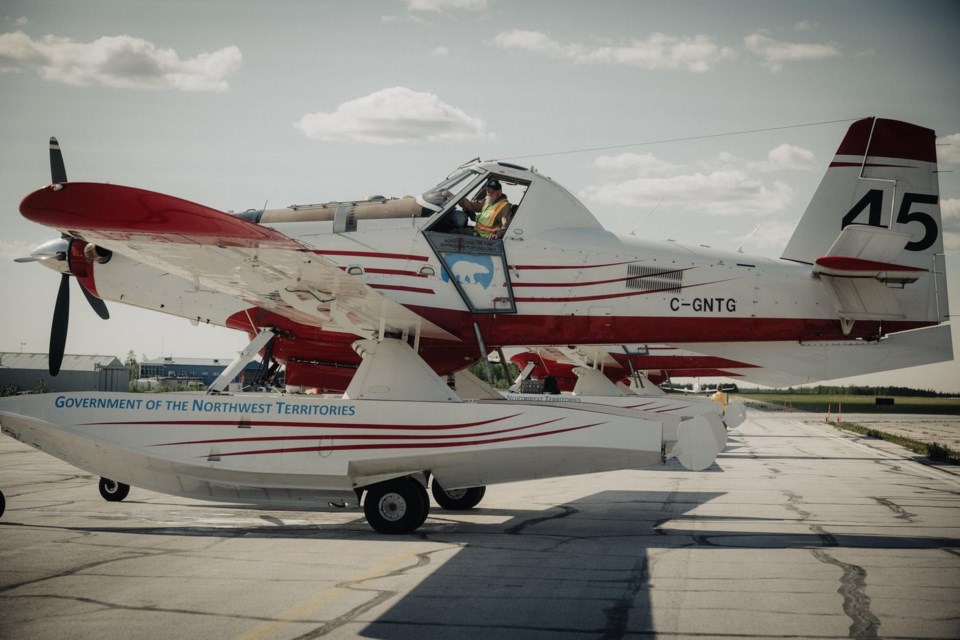FORT GOOD HOPE, N.W.T. — A wildfire that forced the evacuation of a remote community in the Northwest Territories continued to grow Monday, but high winds were expected to push flames away from the town.
Fire officials said warmer temperatures threatened to increase fire activity near Fort Good Hope. The weather was expected to remain the same Tuesday, with no rain expected over the next couple days.
The community was told to evacuate Saturday, when the fire was less than two kilometres away, and it later reached the community.
The out-of-control blaze grew Sunday night to more than 13 square kilometres from nine square kilometres.
There have been no reports of burned structures.
"We haven't lost any houses, any buildings," Fort Good Hope Chief Collin Pierrot told a briefing.
Just over 100 of the community's 500 residents have stayed back to help with fire suppression, he added.
The territory was also sending additional fire crews to the area.
Those on the ground were patrolling the perimeter and attacking hot spots. Air tankers and helicopters were also dropping retardant and water buckets to slow growth of the fire.
Most evacuees were sent south to Norman Wells, while others moved to a nearby fish camp and the Dene community of Deline.
Pierrot thanked residents who offered to stay back.
"Everyone that is helping out right now is going through a lot themselves, regardless of fighting the fire. We still have families that we have to think about," he said.
The territory said it doesn't have a timeline for when residents might be able to return home.
"Once we secure the perimeter and have containment of the fire, especially the side facing the community, and it's deemed under control, then I think it would be good news for the residents to go back," said fire information officer Frank McKay.
Evacuees sent to Norman Wells were welcomed with a warm meal and a place to stay.
Mayor Frank Pope said it's the first time in 20 years the town has had to take in wildfire evacuees. The town opened its arena to those who don't have family to stay with.
Most are in good spirits, and some have pitched in to help cook, said Pope. "We're giving them the supplies. They're doing some of the cooking. It's a team effort."
Norman Wells had its own scare Sunday evening, when smoke was spotted to the east.
Water bombers in the area responded quickly, but there was worry.
"Just feeling, like, existential dread yesterday, as we were hosting a community. And then looking at a fire about 14 kilometres from our town ... was a little bit of a wake-up call to the severity of the situation," said Josh Ferguson, a freelance photographer and volunteer firefighter.
The town issued a fire ban until further notice. Wildfires have also put pressure on its fuel supply.
Norman Wells normally relies on a barge to transport goods and fuel while its winter road is closed. But low water levels in the area have halted that water transportation, said Pope, leaving air transport as the only option, which can be costly.
— By Brittany Hobson in Winnipeg
This report by The Canadian Press was first published June 17, 2024.
The Canadian Press



